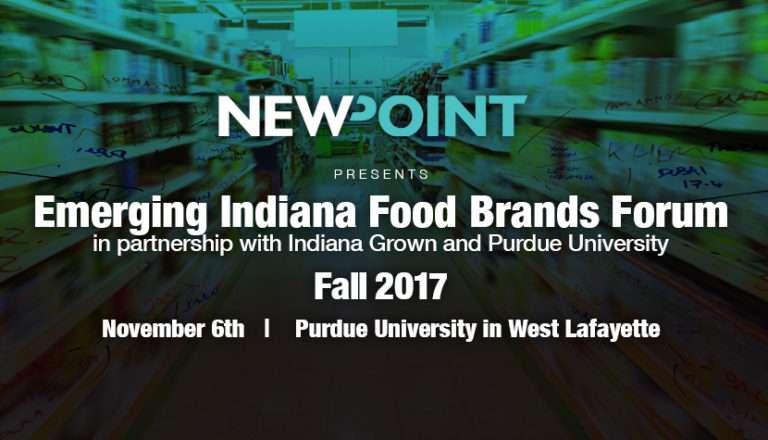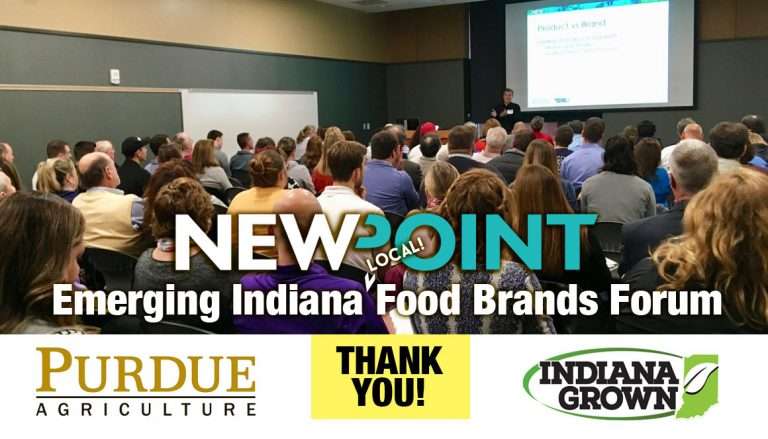Sep 27, 2023
A Strategy-First Food Marketing Agency: NewPoint
The Unique Value Proposition of NewPoint Marketing: A Specialized Food Marketing Agency
As a strategy-first food marketing agency, NewPoint Marketing’s 50+ year history starts by studying what contributed to the success of some of our most iconic food brands. The journey of food brands in the US is a testament to the ever-evolving consumer landscape. From seeking convenience to demanding sustainability, the American consumer’s preferences have shaped the trajectory of food brands. As we look ahead, thinking about the next chapter in food marketing is exciting, driven by

innovation, technology, and an ever-deepening understanding of consumer desires.
The food and beverage industry has witnessed unprecedented shifts over the past decade. With emerging trends and rapidly changing consumer preferences, it has become imperative for food brands to have a focused marketing strategy. Enter NewPoint Marketing, a food marketing agency and a leading light in the food marketing landscape that specializes in both B2C and B2B marketing across various sales channels—retail, foodservice, private label, and hospitality.
The Rise of Top US Food Brands: A Journey from the Early 20th Century to Today
Food has always been central to human existence. But in the US, the early 20th century marked a significant turning point in how food was marketed, consumed, and perceived. This period saw the birth and evolution of some of the country’s most iconic food brands, which have since become household names. Here’s a look at the journey of these food brands from humble beginnings to market dominators.
- The Early Days: 1900s to 1920s At the turn of the century, America was transforming. Urbanization was in full swing, and as people moved to the cities, they were no longer just growing their food. This shift created a need for processed and packaged foods, which were convenient and had a longer shelf life.
Brands like Kellogg’s and Campbell Soup emerged during this time. Kellogg’s, for instance, initially promoted cornflakes as a healthy breakfast alternative. Campbell’s, on the other hand, gained popularity for its condensed soups, promising quality and consistency in every can. - The Age of Advertising: 1930s to 1950s The Great Depression and subsequent World Wars profoundly affected the food industry. With rationing and economic hardships, brands had to convince consumers that their products were worth the investment.
This era marked the rise of iconic advertising campaigns. For instance, the “Snap, Crackle, Pop” slogan for Rice Krispies became an instant hit. Brands also began using mascots, like Tony the Tiger for Frosted Flakes, which resonated deeply with children and families. - Embracing Convenience: 1960s to 1980s Post-war America was all about convenience. As more women joined the workforce, there was a rising demand for quick and easy meal solutions. TV dinners, introduced by brands like Swanson, became a staple in American households.
Simultaneously, the fast-food culture exploded. Brands like McDonald’s and KFC expanded rapidly, offering affordable and quick meals. Their success was due to their product and revolutionary marketing strategies, emphasizing family-friendly environments and consistent quality. - The Health Wave: 1990s to 2000s As we approached the turn of the millennium, there was a heightened awareness about health and wellness. Consumers began to scrutinize food labels and demand transparency. Brands had to adapt or risk becoming obsolete.
In response, many brands introduced ‘light’ or ‘low-fat’ versions of their products. Organic and natural food brands also gained traction, catering to a segment of consumers looking for clean and wholesome products. - Today: The Age of Personalization and Sustainability In the current era, personalization and sustainability dominate food marketing. With the rise of digital technology, brands can cater to individual preferences like never before. There’s also a strong push towards sustainable and ethical practices, with brands highlighting their efforts in reducing carbon footprints, ethical sourcing, and supporting local communities.
For instance, brands like Beyond Meat and Impossible Foods have disrupted the market with plant-based alternatives, emphasizing sustainability and health without compromising on taste.
NewPoint Marketing’s Distinct, Strategy-First Food Marketing Agency Approach
Where NewPoint Marketing truly stands out from the competition is its tailored approach. Recognizing that the top pain points of its target audience include growing sales and market share across different sales channels, NewPoint excels in facilitating both B2B sales meetings and driving consumer sales. The food marketing agency provides an exhaustive suite of services, from branding, brand positioning, campaigns, advertising, and social media to sales collateral, ensuring that food brands have all they need to facilitate a sale.
The heart of NewPoint’s approach lies in its commitment to work closely with clients. This ensures that branding and advertising strategies resonate deeply with a brand’s core values and vision. This tailored strategy stems from comprehensive research that includes store checks, surveys, and focus groups, enabling the agency to tap into a brand’s core target audience effectively. For instance, surveys help NewPoint understand consumer preferences, aiding in crafting potent marketing messages that differentiate a brand in the marketplace.
Insights and Adaptability
In the ever-evolving food industry landscape, adaptability is critical. NewPoint Marketing ensures its strategies remain on the cutting edge by maintaining strong relationships with research firms and staying updated on macro and micro food industry trends. One of the significant insights driving NewPoint’s strategy is emphasizing a brand’s “reason for being” and understanding the factors that influence consumers to choose one brand over another. While most food brands differentiate based on price, NewPoint identifies other trends like simple, easy-to-read ingredients and responsible sourcing to build a robust and unique brand identity.
Digital Dominance
While NewPoint Marketing is well-versed in various media tactics, the firm recognizes the growing importance of digital media in the current market landscape. Prioritizing digital over traditional advertising methods, the agency effectively ties into shopper marketing and load-to-card programs, ensuring its clients are well-positioned to capitalize on the digital revolution.
Forbes Agency Council and NewPoint’s Commitment to Excellence
NewPoint Marketing’s excellence in food marketing has not gone unnoticed. Being a proud member of the Forbes Agency Council since 2018 is a testament to their unwavering commitment to driving results for their clients in the food industry.
The Future is Bright
NewPoint Marketing, with its diverse range of marketing and advertising services, is uniquely positioned to cater to the needs of food brand business owners and marketing professionals. With a singular goal – to grow sales and gain market share for brands – the agency is always poised for the next challenge.
For those eager to delve deeper into how NewPoint Marketing has significantly impacted the market share or sales of a food brand, the opportunity awaits. Contact NewPoint for a free consultation to learn more about these success stories and discover the potential NewPoint holds for your brand.





